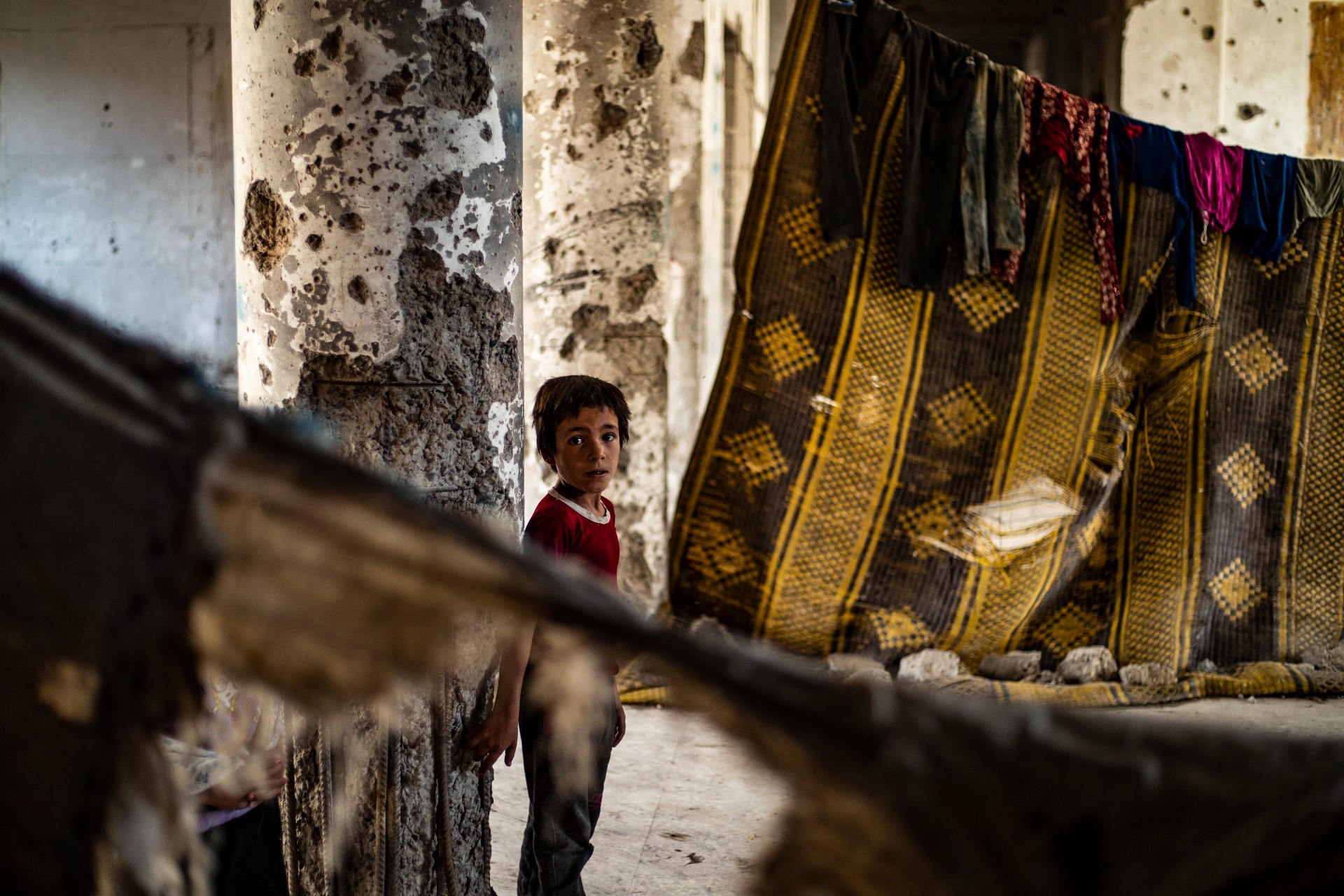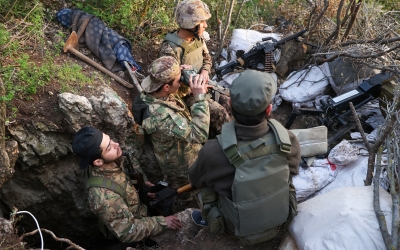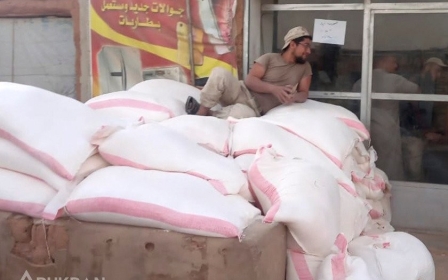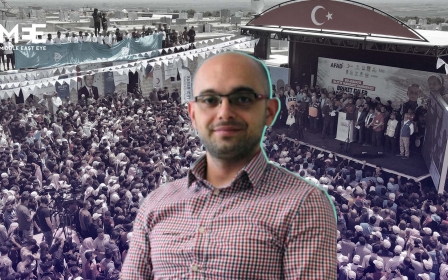UN to launch drive to uncover Syria’s missing as death toll rises

The United Nations said a new drive to locate thousands of people missing in Syria’s war is set to be announced, as newly released statistics shed light on the scale of death in the conflict and in Syrian prisons.
Paulo Pinheiro, chair of the UN Independent International Commission of Inquiry on Syria, told Middle East Eye that the secretary-general will soon publish a report on how to bolster efforts to locate the missing in Syria.
“For those who have perished, their loved ones must be allowed to lay them to rest. This is the suffering inflicted upon the families and in many cases beginning 10 or 11 years ago,” he said.
'The families of the missing have waited too long and it is past time for the international community to take bold action'
- Paulo Pinheiro, UN
On Tuesday, the UN said an estimated 306,887 civilians had been killed in Syria’s conflict since it erupted in March 2011. However, this number does not include combatants killed and indirect deaths caused by lack of healthcare or access to food or water.
Meanwhile the Syrian Network for Human Rights (SNHR) activist group also published a report on Tuesday saying 14,700 people had died while detained in Syria’s notorious prisons, the majority at the hands of the Syrian security services.
New MEE newsletter: Jerusalem Dispatch
Sign up to get the latest insights and analysis on Israel-Palestine, alongside Turkey Unpacked and other MEE newsletters
“This is the time for UN member states to act, to show solidarity, and to support all victims of the conflict and their families by ensuring robust action is taken,” Pinheiro said. "The families of the missing have waited too long and it is past time for the international community to take bold action to help resolve these issues. It will no doubt be a lengthy endeavour, but it must begin without further delay
“We are a decade late already. As the High Commissioner for Human Rights reported today, more than 300,000 civilians are estimated to have died in the Syrian conflict since 2011.
"Credible estimates place the number of missing at more than 100,000, including tens of thousands who are arbitrarily detained and who remain forcibly disappeared by parties to the conflict.”
Thousands of detainees
According to the SNHR’s report, among those who died in Syria’s prisons were around 200 children and 100 women.
The report included testimonies of people who had survived ill treatment from the security forces, which have arrested some 1.2 million Syrians since protests against President Bashar al-Assad began in 2011, and continue to hold 133,000 people.
Torture is practised in Syria against political or military opponents between the parties to the conflict or from the controlling powers, the SNHR said, with the aim of extending control and suppressing any human rights claims or the practice of democracy.

It classified arrests carried out without a warrant, deplorable conditions of detention and the psychological effects on detainees as torture.
Former Syrian detainees have described being beaten in cars after being snatched off the streets, a process described locally as a “welcome”. They say torture is often meted out before any interrogations are begun.
Systematic torture includes mass beatings, waterboarding, electrocution, sleep deprivation, suspension, sexual assaults, and the removal of teeth and nails.
Prisons are often very overcrowded, with as many as 200 people crammed in one room. Former detainees have described being severely underfed and living in cells with insect and rat infestations.
Sometimes detainees are taken to military hospitals, where rotting limbs are cut off. Last year, Germany prosecuted a Syrian doctor who worked in a military hospital where he performed major operations without anaesthetic.
Imad Haj Rahmon, one of the thousands of victims, was a refugee in Jordan and returned to Syria in early 2020. He was summoned for interrogation several times in Damascus, and then arrested in the city of Hama, his brother told the SNHR. The 55-year-old was eventually transferred to Sednaya prison, where he died under torture in late 2021, according to his family.
Anti-torture decree
In March, Assad issued a decree criminalising torture with a three-year prison sentence or the death penalty if torture includes rape or murder, a move ridiculed by human rights groups.
In response to the decree, US-based Human Rights Watch said that despite extensive evidence, the Syrian government had done nothing to stop its agencies from using torture.
“Torture in Syria is systematic, and we do not expect it to stop without political change in the Syrian authorities, who have not investigated or held accountable those involved in torture,” Fadel Abdul Ghany, founder of the SNHR, told MEE.
'Torture in Syria is systematic, and we do not expect it to stop without political change in the Syrian authorities'
- Fadel Abdul Ghany, SNHR
“SNHR is constantly documenting arrests and cases of brutal torture, and victims as a result of torture. We confirm that thousands of detainees are still subjected to various types of torture,” he added.
“Torture is carried out in deliberate ways in which several institutions in the state participate, to implement it on a large scale, to influence and terrorise society as much as possible.”
At least 11 people are known to have been killed as a result of torture since Assad’s decree, according to the SNHR.
The group said the Syrian authorities have established local laws that allow torture and grant immunity to torturers and do not hold them accountable, and claimed abuse is carried out under direct orders from the Syrian president.
Military intelligence personnel enjoy general immunity and the military court is not allowed to prosecute them except under orders issued by the commander-in-chief of the army and armed forces, meaning Assad himself or his defence minister, according to the report.
“The issue of detainees cannot be resolved without a political solution,” Abdul Ghany said, calling for international intervention.
Middle East Eye delivers independent and unrivalled coverage and analysis of the Middle East, North Africa and beyond. To learn more about republishing this content and the associated fees, please fill out this form. More about MEE can be found here.




